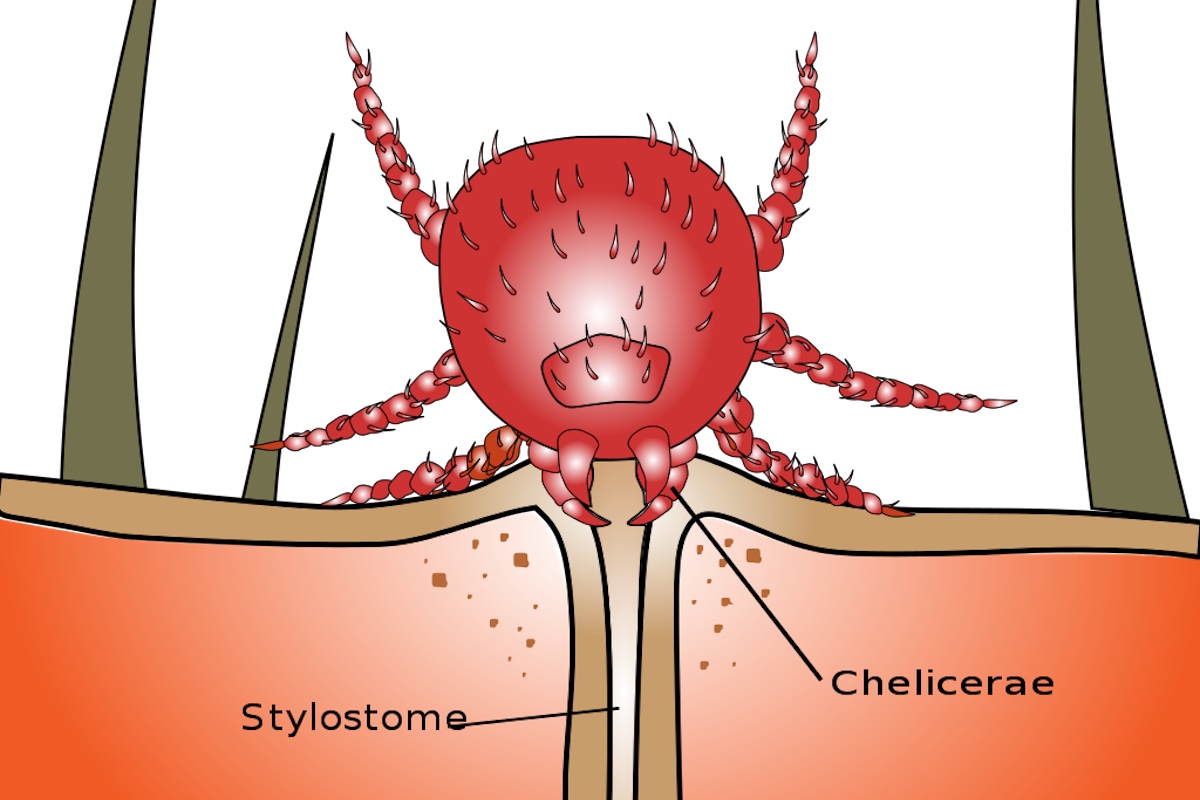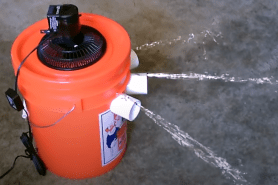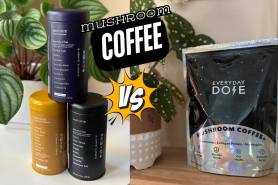

Back when I was in the Marines, I attended a two-week-long Combat Skills Refresher Course at Camp Lejeune. This was about 20 years ago. For the event, I had to sleep in this old hooch. That’s what the Marines called these cheaply-made wooden buildings. And wouldn’t you know it, by spending time in these rundown structures in the North Carolina swamplands and sleeping on cots from the Vietnam era, my back got covered in chigger bites.
Videos by Outdoors with Bear Grylls
If you don’t know what chiggers are, don’t feel bad. I didn’t until my back got eaten up by them. My fellow Marines explained to me that chiggers burrow into your skin to lay eggs, which made sense because, in the spots I had gotten bitten, it felt like needles occasionally poking me in the back. And they told me to get rid of them, I needed to suffocate them with nail polish remover.
Being responsible and wanting it administered properly, I asked the corpsman — or Navy medic — to apply the nail polish remover on my bites, which he obliged. It burned my skin, stung the bites, and left me smelling like acetone, but all done in the name of health. The next day, he gave a speech to the squad about how to get rid of chiggers. He wanted to educate in case someone didn’t know. He explained to get rid of chiggers, you have to suffocate them with nail polish – NOT nail polish remover.
He singled me out without singling me out, so it was less embarrassing but still embarrassing, you know? I think what happened is he didn’t know about that folksy home remedy that you should clog the little bug nests. But the thing was nail polish didn’t work for me either and I ended up going home with a splotchy, itchy back. It wasn’t until I saw a doctor that I learned that everything I had heard about chigger bites was wrong.

What you need to know about chigger bites
Chiggers are tiny little bugs that you can barely see with your naked eye. Technically, they’re called Trombiculidae, but sometimes they’re also referred to as berry bugs, bush-mites, or my favorite scrub itch mites. When they’re babies, they like to live in unkempt landscapes like tall grass, weeds, and bushes. So if you’re outside, experts suggest that you steer clear of such areas or if you must wander through them, you should wear boots and apply permethrin-based insect repellent to your clothes.
Also, chiggers don’t burrow into your skin, but rather, they bite you. Specifically, when they’re babies, they bite, cling to your skin, and spit on you. So you can understand the confusion. Their spit helps dissolve your cells, so they can eat your skin. Once they fill their bellies, though, they fall off. But they leave behind a little red bump, or a cluster of bumps if you’ve been bitten several times, that might look like pimples on your skin.
Even though they feed kind of like ticks, chiggers don’t really carry disease — at least not in the U.S. They’re mostly just annoying. However, if you scratch your chigger bites, your skin can get infected and lead to cellulitis, which is a catchall term for bacterial infection. And that’s when you can get into real trouble.
And since chiggers eventually fall off, nail polish won’t do anything except maybe further irritate your skin or worse if you use nail polish remover. Instead, experts suggest remedies like washing with soap and water and using some calamine lotion or antihistamine cream. If it gets really bad, like mine did, a doctor might prescribe an oral antihistamine.
What are some outdoor myths that you’ve encountered? Tell us in the comments below.









